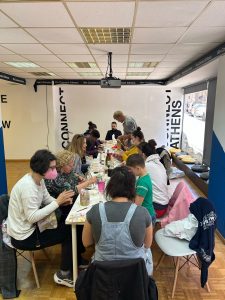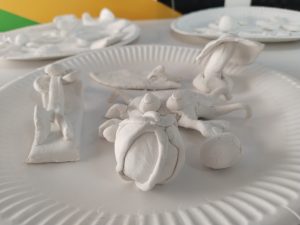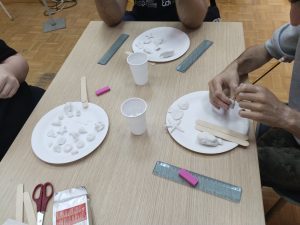Creation and Empowerment: Art Workshops with a Focus on Clay for Mental Well-being and Social Inclusion of Youth
Art workshops are recognized as valuable tools for fostering creativity, emotional expression, and social connection. Particularly for young people facing mental health challenges or social isolation, these workshops provide a therapeutic outlet, enabling individuals to express themselves, develop self-esteem, and build social skills in a supportive environment. The creative process not only aids in emotional healing but also facilitates the formation of meaningful connections and mutual support within communities.
The Role of Art Workshops in Personal and Social Development
Art offers young people a safe space for self-expression, allowing them to explore complex emotions and personal narratives that may be difficult to communicate through words. Beyond individual benefits, art workshops foster social skills by encouraging collaboration and communication, enabling youth to engage with peers in positive, constructive ways. This collaborative nature helps reduce isolation, strengthens social bonds, and promotes a sense of belonging.

Art Workshops with Clay: A Unique Path to Expression and Connection
Among the various forms of artistic expression, art workshops with clay stand out for their tangible, hands-on nature. Working with clay offers participants immersive and therapeutic experience, providing them with an opportunity to express their thoughts and feelings through a tactile medium. The process of shaping and molding clay engages the senses, helping to ground individuals and reduce stress.

For young people who struggle with anxiety, depression, or emotional difficulties, creating with clay offers a soothing and meditative experience. The physical act of sculpting provides a sense of control and accomplishment, fostering emotional resilience and self-esteem. Furthermore, these workshops encourage socialization and community building, as they often involve group activities that promote cooperation, shared experiences, and communication.

Both art workshops and those specifically focused on clay play an essential role in social inclusion. They offer young individuals, particularly those dealing with mental health challenges, a space for personal expression and meaningful interaction. The ability to create art in a supportive environment helps participants build a sense of agency, increase their social participation, and develop essential life skills, ultimately reducing the stigma associated with mental health struggles.
By engaging in these workshops, young people develop stronger connections with others and enhance their capacity to contribute to society. As a result, art workshops not only promote individual mental well-being but also play a crucial role in fostering more inclusive and supportive communities.
Art workshops, particularly those involving clay, offer a powerful and holistic approach to supporting the mental health and social inclusion of young people. Through the therapeutic act of creation, youth can express themselves, build resilience, and strengthen social ties. By providing a creative outlet that encourages both personal and collective growth, these workshops help break down barriers to inclusion and empower youth to become active participants in society.
Author:
Panagiota Katsiri
Integrative Counsellor/ Sociologist
References
- Stickley, T., & Duncan, R. (2009). The role of art in promoting well-being and social inclusion. British Journal of Occupational Therapy, 72(4), 132–139.
- Stuckey, H. L., & Nobel, J. (2010). The connection between art, healing, and public health: A review of the medical literature. American Journal of Public Health, 100(2), 254–263.
- White, M., & Walker, P. (2006). The impact of creative art therapies on the psychological well-being of youth. Journal of Art Therapy, 39(3), 119–127.
